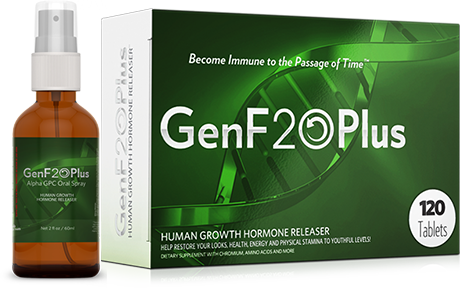Aging and Sex
Aging is a mysterious human biological process that we all have to face. This aging process, just like any other scientifically proven development, is far from being unexplainable. Aging involves many explanations and theories and how this natural phenomenon happens to all human beings. Most scientific explanations for aging are based on the observations of objects around us. The process of aging is attributed to the principle that an individual, just like any animal and non-living, sophisticated engines, tends to deteriorate or age as years pass by. Aging among humans comes in two forms - the chronological and biological processes. Experts tell us that chronological aging pertains to the years you have been living. In contrast, natural aging shows how much your body changes, in comparison to how you were from the past years, and to other people who are of the same age as you are. Because the biological process is what matters most in aging, you now have some measure of control directly over your health as it is now possible to prolong or slow down physiological maturity by merely adhering to the currently available medical breakthroughs that can stop the aging process.
Theories on Aging
Theories and medical studies related to aging are exhaustively expounded to help people understand the principles of the process. One of the fundamental theories that explain aging is genetics. Scientists claim that the biological process of aging is coded in our genetics. The theory states that environmental factors can affect our aging process detrimentally as pollutants can degrade the formation of cells in the body. This theory is flawed, however, as in the fact that aging is genetic, and we cannot do anything to stop it. Because that are many safe and legal ways to keep our bodies healthy and younger looking, this theory is generally disregarded by today's medical experts.
Meanwhile, stress is another prime factor that can affect the aging process. Stress affects the hypothalamus, which is the aging and growth gland inside our bodies. The hypothalamus is thought to be the "Boss of all Glands" because this gland controls the hormonal release processes of all the other organs in the human body. When experiencing too much stress, this gland will become less accurate, thus, leading to imbalanced hormonal level within our bodies and resulting in more damaged tissues.
This free radical theory is the most widely accepted explanation on aging. Free radicals, or highly reactive loose body chemicals, are proven to be the leading cause of tissue damage when over-exposed with these chemicals. While free radicals have many usages in the body, too much of these bodily chemicals can damage our cells and tissues.
These chemicals are highly reactive, so these free radicals have adverse effects inside the body. These chemicals contain extra electrons enabling them to absorb particles from other molecules. As this process repeats itself, these free radicals wear out the cells in our bodies, creating new chemicals in the process. As these cells in our bodies wear out, we then experience the early signs of aging.
Effects of Aging on Sex
We experience many changes as part of the aging process, and these changes can be both physical and psychological. Unfortunately, our sexual drive is among the many things that will change as we age. In our youth, we have a whole lot more interest in this type of activity. But as we age, we have less energy and lose interest in sex.
Hormonal changes are typical signs of getting older. These changes will have a significant effect on sexual drive. For men, testosterone production decreases as a part of aging. The same holds for women who age, as well. Studies show that most women who are in the prime of their age, lack the strong sexual drive they once had when they were still young.
Physical changes are not the only factors that can affect the sexual drive of the elderly. Changes in our environment and surroundings can have an impact on the sexual journey of the aging—the concepts and values of sex change from stage to stage during our lives. If you're currently living in your fifties or sixties, you'll see that the sexual values and beliefs of your time are very different compared to the experiences and principles of the younger generation. Hence, physical changes and social influences can fundamentally affect the sexual drive of every aging individual.
How to Maintain Sexual Drive
Having sex regularly is the most effective way to maintain and improve your sexual ardor. If you're having issues in the bedroom, try some GenF20 Plus™ HGH. This supplement can help to restore your HGH to youthful levels, which not only can GenF20 Plus™ help give you more energy in the bedroom, but it can also help to boost your sex drive.
Learning the psychology of sex can also help you and your partner have a satisfying and healthy sexual relationship. As you age, consider the factors that can affect you and your partner's sexual activities. These considerations include stable medical conditions, proper medications, adequate foreplay, and appropriate positions. When these factors are considered by aging adults who are experiencing problems with sex, they will experience improvements in their relationships and sexual activities.
Aging is a part of living, and one of those things we cannot prevent from happening. Although inevitable, aging is still a wonderful part of our natural lives. We have gained so much from our collective experiences from our existence. If we take care of ourselves, aging can be prolonged. But, one way or the other, we will still invariably experience the effects of aging, particularly in sex. Daily exercise, eating right, and taking care to maintain a healthy body, will help your body maintain its sexual vigor even as you get older.



